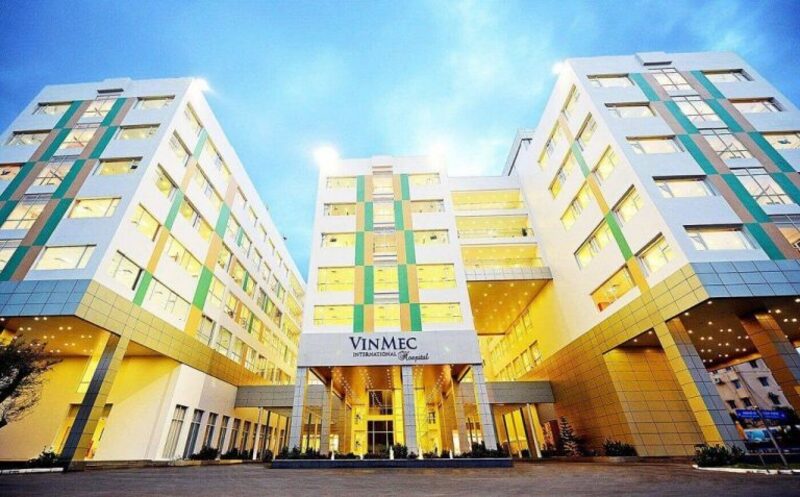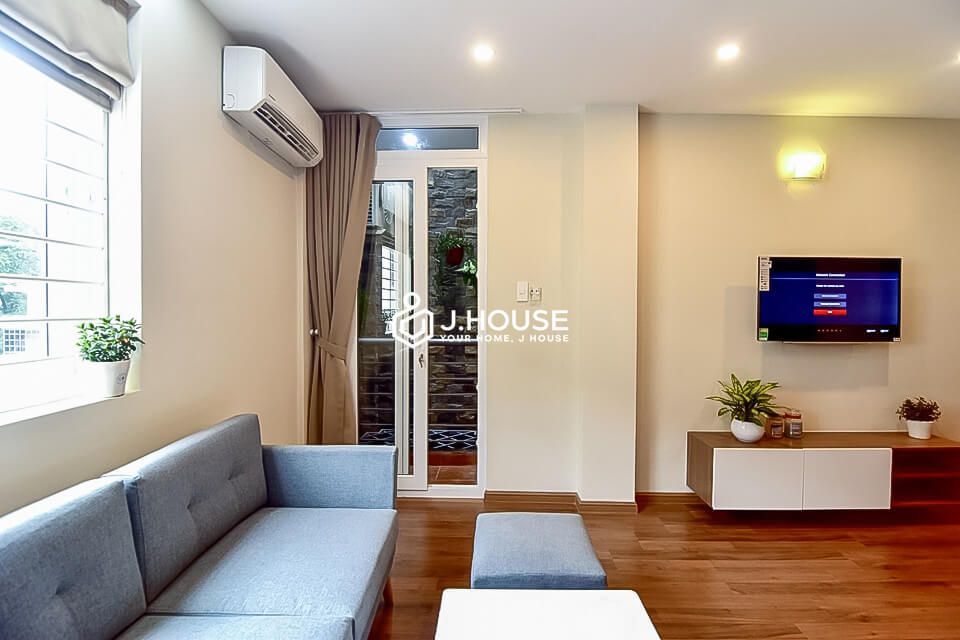Latest Properties
Healthcare in Vietnam for Expats: Insurance & Hospital Tips
Healthcare in Vietnam for Expats: What You Need to Know
Healthcare in Vietnam for expats can be both a relief and a challenge. While the country has made great strides in upgrading its medical services, navigating hospitals, choosing the right health insurance, and finding English-speaking doctors can still be overwhelming — especially for newcomers. And let’s be honest: when you’re settling into a new country, the last thing you want is uncertainty around your health.

Whether you’re here for work, retirement, or simply to embark on a new adventure, staying healthy is crucial to enjoying your expat journey. Understanding how Vietnam’s healthcare system works — and how it differs from your home country — can save you time, stress, and even money.
This guide walks you through everything: from choosing a hospital, understanding insurance options, to dealing with emergencies — so you can focus on living well, not worrying about what might go wrong.
Healthcare in Vietnam For Expats: A Growing System With Global Reach
Over the past decade, Vietnam’s healthcare system has evolved rapidly. Major cities like Ho Chi Minh City and Hanoi are now home to state-of-the-art hospitals and international clinics serving both locals and expats. From routine checkups to emergency care, Vietnam offers a wide range of medical services for expats — but the experience can vary widely depending on where and how you seek care.
The country operates on a dual system: public hospitals are government-run and very affordable, while private hospitals often deliver faster service, shorter wait times, and more modern facilities — though at a higher price.
Most expats opt for private care, especially in urban areas where English-speaking doctors are more readily available. Many of these doctors are trained abroad and familiar with international healthcare expectations, adding peace of mind for those concerned about quality and communication.
Explore more: Long-Term Living in Vietnam: A Settling Guide for Expats & Families
Private vs. Public Hospitals: What Expats Should Know
Public hospitals in Vietnam offer basic care at low cost, but they can be crowded, and language barriers are common. Expect longer wait times, shared rooms, and minimal patient privacy. That said, public facilities have improved and are suitable for certain needs — especially if you’re on a budget and have Vietnamese-speaking support.
Private hospitals, on the other hand, are the go-to choice for most expats. Institutions like FV Hospital, City International Hospital, and Vinmec are well-regarded for their service quality, clean environments, and transparent procedures. Many also provide international billing, making them easier to navigate if you have overseas insurance.
Top Private Hospitals for Expats in Ho Chi Minh City:
- FV Hospital (District 7)
- Vinmec Central Park International Hospital (Binh Thanh)
- City International Hospital (Binh Tan)
- Family Medical Practice (District 1, 2, 7)

These hospitals often feel more like Western medical centers — with appointment-based services, shorter wait times, and multilingual staff. However, the cost of medical treatment for foreigners in Vietnam at private hospitals can be high without insurance — which brings us to the next essential topic.
Health Insurance in Vietnam: Why It Matters
Don’t wait until an emergency hits to think about insurance. Health insurance in Vietnam is not only essential for peace of mind, but it also helps manage the unpredictable — from hospital stays to specialist visits.
There are three common insurance options for expats:
1. International Health Insurance
Best for long-term expats and those who want global coverage. Plans from providers like Cigna, Allianz, or Bupa often cover treatment at top hospitals for expats in Vietnam and allow cashless claims at partnered clinics.
2. Local Private Health Insurance
Affordable and widely accepted in Vietnam. Companies like Bao Viet and Pacific Cross offer flexible plans tailored for expats — great if you don’t need global coverage but want good protection locally.
3. Employer-Provided Insurance
If you’re working in Vietnam legally, your employer may offer insurance. Review the policy carefully: it may be limited to specific providers or exclude international clinics.
How to Get Health Insurance as an Expat in Vietnam
Getting insured is easier than you think. Many insurance providers in Vietnam now have English-speaking staff and online portals.

Here’s a basic step-by-step:
- Assess Your Needs: Do you need international coverage? Inpatient only or also outpatient?
- Compare Plans: Check exclusions, hospitals covered, and annual limits.
- Apply Online or via Broker: A broker can help compare quotes and complete paperwork.
- Understand Your Policy: Know how to file claims, which hospitals are cashless, and what pre-approval means.
Note: Always keep a physical or digital copy of your policy and ID card when visiting any hospital or clinic.
Cost of Medical Treatment for Expats in Vietnam
Vietnam offers relatively affordable healthcare compared to Western countries, but costs still vary:
|
Service |
Estimated Cost (USD) |
| General Consultation | $20 – $60 |
| Specialist Consultation | $40 – $100 |
| Health Check-up Package | $100 – $300 |
| Emergency Room Visit | $100 – $500+ |
| Overnight Hospital Stay | $150 – $600 per night |
| Surgery (minor to major) | $500 – $10,000+ |
Note:
- The consultation fees for general and specialist visits only cover the doctor’s time; additional costs for tests, medication, or follow-up treatments are not included.
- These prices are general estimates based on private hospital rates in major cities like Ho Chi Minh City and Hanoi. Actual costs may vary depending on the facility, level of care, and time of treatment.
Having insurance can significantly reduce or eliminate these costs, especially for inpatient care. If you plan on staying long-term, investing in comprehensive health insurance is highly recommended.
Tips for Navigating the Healthcare System
Whether it’s your first time seeing a doctor in Vietnam or you’re managing long-term health needs, these tips will help you move confidently through the system:
- Choose the Right Facility: Use international clinics for checkups and consultations. Save public hospitals for urgent cases with Vietnamese-speaking help.
- Book Appointments in Advance: Especially in private hospitals, scheduling ahead ensures better service and shorter waits.

- Bring Your Documents: Passport, insurance card, visa copy, and vaccination records — keep them ready for registration and claims.
- Ask for an English-Speaking Doctor: Many top facilities allow you to request an English-speaking physician — don’t hesitate to ask.
- Understand the Payment Process: Some hospitals offer direct billing with insurers; others may require upfront payment and later reimbursement.
Finding English-Speaking Doctors & Pharmacies
In major cities, finding English-speaking doctors in Vietnam is no longer a struggle. Clinics like Raffles Medical, Family Medical Practice, and CarePlus are staffed with multilingual professionals.
Pharmacies are also easy to find and well-stocked, but prescriptions may differ from your home country. When in doubt, go to larger pharmacies near hospitals or clinics — and bring a copy of your original prescription if you have one.
Healthcare Beyond Hospitals: Wellness & Prevention
Vietnam’s healthcare isn’t limited to hospitals. From annual health check-ups to vaccinations, you’ll find a growing focus on preventive care — especially in cities with a large expat population.
Many private clinics offer packages that include:
- Blood work & screenings
- Eye, dental, and ENT checks
- Gynecological or urological exams
- Mental health consultations
If you’re staying long-term, consider booking a full-body check-up once a year. It’s also wise to stay up to date on vaccinations in Vietnam, especially for diseases like dengue, hepatitis, or Japanese encephalitis.
Telemedicine & Remote Care: A Modern Alternative
You don’t always need to visit a hospital in person — especially for non-urgent concerns. If you’re traveling or living outside major cities, online consultations offer a convenient and time-saving alternative.
Since COVID-19, telemedicine in Vietnam has grown rapidly. Apps and platforms now allow expats to consult with doctors online — ideal for follow-ups, minor health issues, or quick medical advice from the comfort of your home.

Popular platforms include:
- Jio Health
- eDoctor
- Doctor Anywhere
Just ensure your provider accepts insurance or offers English-language support before booking an appointment. However, for serious conditions or emergencies, in-person care at a hospital is still highly recommended.
What Are the Common Healthcare Challenges for Expats?
Even seasoned expats can feel lost when facing medical challenges in a new country. Despite all the improvements, healthcare in Vietnam can still feel overwhelming — especially if you’re unprepared. Here are a few common pain points to watch for:
- Language barrier: Not all hospitals have English-speaking staff — even in major cities. This can complicate diagnosis and consent.
- Payment confusion: Some clinics don’t accept international insurance without prior approval, leading to out-of-pocket surprises.
- Emergency care: Ambulance services vary in quality. Public options may lack equipment, while private ambulances are more reliable — but come at a cost.
Solution: Choose private facilities with international experience whenever possible. Register in advance, keep emergency contacts ready, and know how your insurance works in Vietnam. A little preparation goes a long way in ensuring peace of mind when you need it most.
Read more: Long-Term Living in Vietnam: Top Challenges & How to Overcome
Final Thoughts: Stay Healthy, Stay Confident
Healthcare in Vietnam for expats doesn’t have to be intimidating. From selecting the right hospital to understanding your insurance plan, a bit of preparation can make a big difference. Knowing where to go, who to call, and what to expect gives you control — whether it’s for a routine checkup or an emergency.
Investing in quality health insurance, choosing trusted private facilities, and staying informed about local medical services are key to feeling secure while living abroad. Your health is the foundation for a fulfilling expat life — don’t leave it to chance.
Whether you’re in Vietnam short-term or planning to stay for years, taking care of your health is essential to living well. For everything else — from housing to lifestyle tips — JHouse is here to help you feel at home.
JHouse Content Team
The in-depth content development team on housing services for foreigners & Vietnamese in Vietnam. The content is simple, easy to understand, and logically arranged to bring readers useful topics and information from real experiences.





















